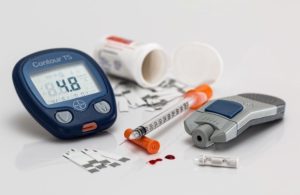
Diabetes was already an epidemic before the novel coronavirus struck. But some researchers now suspect that COVID-19 can trigger the condition. Approximately 14% of patients with severe COVID-19 develop the disease, according to a meta-analysis recently published in the journal Diabetes, Obesity and Metabolism.
To arrive at that thesis, the researchers analyzed eight studies. Half of those came from China, while two came from Italy and two from the U.S. The diabetes rate (13.4%) was lower in the China group than the rate in the combined U.S.–Italy group (15.4%).
Researchers are uncertain why COVID-19 could cause diabetes, but they have linked infections to damage to several organs, including the lungs, heart, kidneys and brain. Some scientists are now investigating whether the disease can damage the pancreas.
The study is not the first to stipulate a link between COVID-19 and diabetes. Indeed, researchers have suspected a range of viruses can trigger type 1 diabetes. Diabetes Research and Clinical Practice and the New England Journal of Medicine have also entertained whether COVID-19 can cause diabetes.
Last year, the King’s College London and Monash University launched a registry to track the development of new-onset COVID-19-related diabetes that reportedly includes patients with mild or asymptomatic infections. The database contains 150 patients thus far.
Unraveling the connection between COVID-19 and diabetes could prove challenging. Some COVID-19 patients who develop the condition after contracting diabetes already had risk factors for the disease, while the steroid dexamethasone can cause elevated blood-glucose levels.
Some patients with no known risk factors, however, apparently developed the condition after falling ill from COVID-19, according to the Washington Post.
It is also possible that some patients diagnosed with diabetes after COVID-19 will recover. Such was the case of some patients in China who developed the condition after contracting SARS. A study following 39 patients who contracted acute diabetes after hospitalization with SARS found the majority had recovered after two years.

